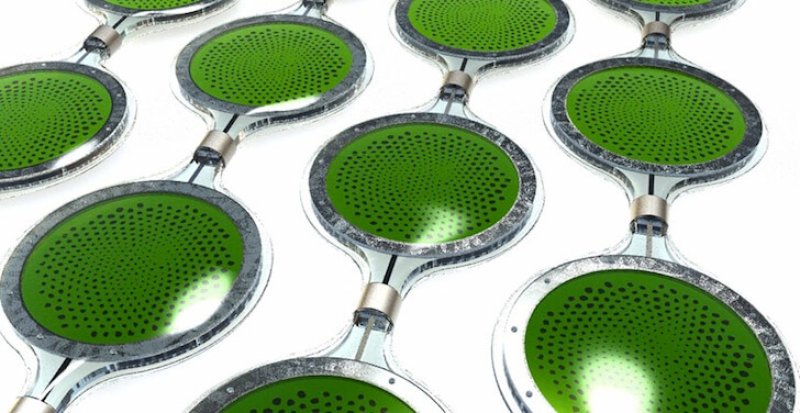Fuel cells powered by living algae that are five times more efficient than current models, have been designed by scientists at the University of Cambridge.
It is thought they could one day be used to provide electricity to places where there is no existing electrical grid system, such as parts of rural Africa.
The new design makes use of genetically modified algae capable of efficiently carrying electric charge.
It uses the photosynthetic ability of plants and algae to convert sunlight into electric current.
Current algae-based fuel cells are a long way from being as efficient as their non-living counterparts, such as solar power, which has emerged in recent years as a green alternative to fossil fuels.
But the Cambridge scientists have developed a breakthrough technique that significantly improves on old models, which they describe in the journal Nature Energy.
…
The scientists … used “advanced algal cells where some genes were modified so they would have better performance,” said [the study’s co-author, Kadi Liis Saar, a chemistry PhD candidate at the university].
This alteration ensured the amount of electrical charge wasted during photosynthesis was minimal.
Read full, original post: Rural Africa could be powered using genetically modified algae, say scientists































